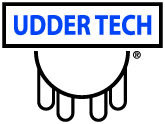In the opening scene of Death and Nightingales, Beth is awoken by the bawling of a distressed animal. While in some ways it may be the call of the beast inside her, it is also, in actual terms, a cow with bloat. She slips the trocar in her dress, finds the cow in the brush and pierces its side to give it relief.
It is rare to find characters that farm, and even more uncommon when they do it accurately. Last weekend, I visited one of the few men who writes such characters.
Eugene McCabe’s farm, Drumard House, sits outside of Clones, County Monaghan, on the border between Northern Ireland and the Republic. He farmed both dairy and sheep (and then eventually Simmentals), first milking by hand before the claw-and-bucket became commonplace.
In the late ’50s McCabe listened to the radio dramas on the national Irish station and decided that he could do better. In 1959, his first play, A Matter of Conscience, was accepted. Following its success, he sold off his Holsteins in 1962 (for the first of two times) and began work on his second play, King of the Castle.
While Ireland established itself as arguably one of the most currently progressive countries by being the first nation to legalize same-sex marriage by a voter referendum, its mores were much less dynamic in the ’60s. In King of the Castle, an ambitious, motivated farmer has worked himself up to being a wealthy landowner – but is impotent and in danger of not producing an heir.
To be able to pass along all he has gained to someone with his name, he tries to convince one of his hired workers to sleep with his wife.
Ireland was not ready for such an arrangement.
While it won the Irish Life Award, it was also conceived as scandalous, being called “a dirty play.” Eugene sat in the audience of its premiere in Dublin and listened to the sparse and intermittent clapping at the end. The highly Catholic and clergy-dominated country (in which divorce only became technically legal in 1998) was not comfortable with witnessing infidelity before them, particularly when it was planned.
Eugene laughed when he described his mother giving the play to the local priest to gauge how much wrong he had committed. Nonetheless, King of the Castle has outlasted Ireland’s conservatism, having run multiple times and been adapted to television.
When I visited Eugene, he had just signed the contract to have it performed again in Galway with one of Ireland’s most noted directors. It was the only play I’ve read which starts with an act of farming: thrashing. Eugene said the first director was also excited by that detail and insisted on having a real thrasher running on the stage.
In later showings, however, it was turned off as the play started, since it drowned out the actors’ voices.
While Eugene McCabe is one of the few living writers who still writes accurately about farming, his work is often most noted for its political themes. Living on the turbulent border, Eugene spent his life witnessing the violence between Unionists (seeking to preserve Northern Ireland’s place in the UK) and Republicans (desiring it to become part of the Republic of Ireland).
Often, neighbors turned against neighbors. Getting to the creamery meant crossing a small stretch of road controlled by Northern forces, who eventually set spikes across it to discontinue traffic. However, instead of going the extra 7 miles to get around the barrier every day, Eugene had the blacksmith create a horse-drawn cart that was raised 5 feet off the ground to allow it to clear the spikes. Not all of Eugene’s stories, however, were pleasant.
He told of a farmer who always ploughed with a pistol in his lap because he expected violence to find him. Eugene heard the shots when he was killed.
In 1992, Eugene published Death and Nightingales, seen by some of his fellow writers as one of the best Irish novels ever written. I asked him what was the most important aspect of writing characters that farmed. He said it was getting the details right.
He mentioned his distaste at seeing acts of farming carried out incorrectly in movies – and then told how he received a letter from a man who said he was able to save a cow from bloat by reading the opening passage of Death and Nightingales.
Currently, the novel has been adapted for film, and the director is excited to show the trocar being used, although Eugene is trying to convince him it would be easier to have the cow calve on-screen instead.
As fewer people farm, so will there be less characters who farm. Eugene also wrote for The Riordans, a widely popular soap opera about a farming family but which, like many farming stories, “died a natural death” as the island became more urbanized.
While there may always be movies with a guy in overalls or a shot of a barn for pastoral ambiance, those who accurately portray farming in the media are few and far between.
Those who do it with the grace of Eugene McCabe are even rarer. ![]()
Ryan Dennis is the son of a dairy farmer from western New York and a literary writer. The Dennis family dairies and maintains a 100-plus cow herd of Holsteins and Shorthorns.





